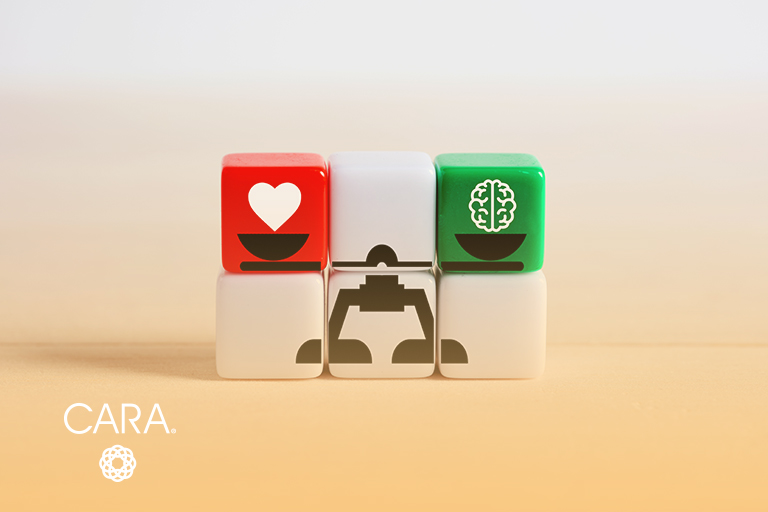
In my first blog, “Consulting Skills For The Workforce of the Future,” I shared what it takes to become an exceptional consultant — the ability to perform and deliver results as well as more advanced soft skills that allow you to become connected and invaluable, such as executive influence, strategic agility, and political savviness. Today, I will share another skill that is critical in “leveling up” as a consultant, and that’s emotional intelligence.
We know that the ability to drive business success and build long-term relationships requires logical and structured thinking. The consultants who pay close attention to the details, immerse themselves into the fabric of the client organization, and are savvy enough to stay clear of business landmines are the most valuable consultants of them all.
“The consultants who pay close attention to the details, immerse themselves into the fabric of the client organization, and are savvy enough to stay clear of business landmines? Those of us on the hiring side know that these are the most valuable consultants of them all. “
How do you LEVEL UP as a Consultant?
Do you want just a “thank you” when you finish a project? Hopefully, you want more than that! You should desire a customer who is ferociously finding ways to continue partnering with you because you have become invaluable to their organization. Consultants who are truly “worth their salt” look back on each consulting engagement and ask themselves and their customers “What could I have done differently to improve that experience or outcome?” This should happen even when the engagement is a success, as self-awareness helps us make sounder decisions, build stronger relationships, and communicate more effectively.
Leveling up as a consultant requires a high degree of Emotional Intelligence (EI) — the ability to identify, understand, and manage one’s emotions as well as the emotions of others, to build and maintain positive relationships. It also includes being able to think clearly and collaborate to solve problems. [1]
“Remaining flexible in response to changing circumstances is the “holy grail” in consulting.”
Emotional Intelligence Traits in Consultants
Emotional intelligence provides a level of empathy to place the consultant in the customer’s shoes, so to speak. They will understand the perspectives, needs, as well as concerns of the customer. Being empathetic can help to build and stabilize relationships because it builds trust and rapport. Adjusting their approach based on the needs and requirements of the client is the key to understanding and meeting the customer where they are! Remaining flexible in response to changing circumstances is the “holy grail” in consulting.
Employer priorities continue to evolve and hiring or promoting based on experience and skills are not enough. With recent economic conditions, it’s important to understand the importance of emotions at work. EI is important across all aspects of work, especially in roles requiring interaction and collaboration – which is at the core of what consultants do!
A person with high EI is more likely to:[2]
- Name and express their feelings and connect to their emotions, to be able to understand and manage their responses to stimuli and events. They can identify root causes rather than ineffectively trying to deal with symptoms or results. They are self-aware, openly expressive, and healthily assertive.
- Know what they want and make plans to achieve their goals. They have a better understanding of what drives them. They are more likely to understand what gives them pleasure and why. This means they are more likely to identify their values and know their purpose in life.
- Remain calm in challenging situations. By labeling their feelings and recognizing their emotions, people with high EI can learn to manage their feelings instead of allowing their emotions to hijack their thoughts. This can help them remain calm while others are losing their heads.
Where are you on the emotional intelligence scale?
The following behaviors will help aid you in the journey to becoming emotionally intelligent:
- Practice self-awareness: Pay attention to your own emotions and try to identify what triggers them. Journaling or reflecting on day-to-day experiences is a way to begin capturing your emotions.
- Learn to manage your emotions: Once you become more aware of your emotions, you can learn to manage them healthily. Practice deep breathing, mindfulness, or meditation.
- Develop empathy: Empathy is the ability to understand and share the feelings of others. Practice active listening, putting yourself in someone else’s shoes, and compassion.
- Build stronger relationships: Emotional intelligence is also about building strong relationships with others. Be open and honest in your communication, show appreciation and gratitude, and develop trust.
- Seek feedback: Ask trusted friends or colleagues for feedback on your behavior. This can help you identify areas for improvement and develop a better understanding of how you come across to others.
Emotional intelligence builds a future-ready workforce
By leveraging human-centric skills like emotional intelligence, you can propel your workforce into the future. Your clients might be resistant to change. HI helps build trust so your clients will see you as a consultant who cares about their business transformations. Developing your HI muscle is instrumental in becoming the change leader your clients need,
If you’re a rock star consultant who’s ready to work across a range of industries with influential organizations, get in touch. As a CARA team member, you’ll have the opportunity to make a difference with these influential organizations by creating innovative solutions that truly address the workforce needs of today and the future.
Let’s connectEmotional Intelligence and Consulting FAQs
Q: What is consulting?
Consulting is about providing expert advice and guidance to help individuals or organizations achieve their goals. If you’re facing a complex business problem, a legal hurdle, or need to implement a new technology, a consultant can act as your trusted partner, bringing specialized expertise to the table to help you find the best solutions and achieve desired outcomes.
Q: What skills are needed for consulting?
Consultants have a diverse skill set that is a blend of hard technical expertise with soft interpersonal talents. Consultants need to be problem-solvers, project managers, experienced communicators, storytellers and experts in their industry.
Q: What is emotional intelligence?
Emotional intelligence is the ability to understand, manage, and use your own emotions effectively, while also perceiving and responding to the emotions of others.
[1] www.helpguide.org
[2] Forbes, “Why is Emotional Intelligence Important?”, December 2022[/vc_column_text][/vc_column][/vc_row]



